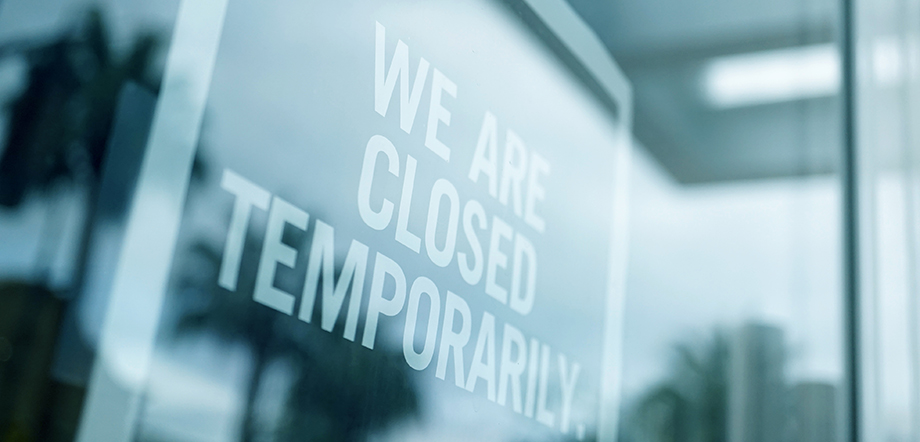Client Alerts
Relief for Small Businesses Affected by the Coronavirus: The SBA’s Economic Injury Disaster Loan Program
March 2020

Client Alerts
Relief for Small Businesses Affected by the Coronavirus: The SBA’s Economic Injury Disaster Loan Program
March 2020
What You Need to Know
- The progression of the coronavirus (COVID-19) pandemic continues to have a devastating impact on the global economy, including adversely affecting the business operations and supply chains of the 30 million small businesses in the United States.
- In order to curb the economic impact on domestic businesses, the federal government, as part of the first phase of its economic stimulus package, has authorized the U.S. Small Business Administration (SBA) to distribute up to $7 billion through the agency’s Economic Injury Disaster Loan Program to small businesses and nonprofits that are located in designated disaster areas affected by the coronavirus.
- As of March 20, 2020, the SBA has declared disaster areas in at least 19 states or U.S. territories, including certain counties in California and the entire state of Ohio.
- Due to the anticipated sheer volume of small businesses adversely impacted by the coronavirus, small businesses affected by the pandemic should proactively prepare for, and apply to, the SBA’s Economic Injury Disaster Loan Program to mitigate their respective losses caused by the coronavirus.
What Is the SBA’s Economic Injury Disaster Loan Program?
On March 6, 2020, President Trump signed into law the Coronavirus Preparedness and Response Supplemental Appropriations Act of 2020 to minimize the economic disruption to small businesses within the United States caused by the outbreak of the coronavirus (COVID-19). The Act, in part, authorizes the SBA to provide up to $2 million in low-interest, federal disaster relief loan assistance to eligible small businesses, small agricultural cooperatives, small businesses engaged in aquaculture, or private nonprofit organizations located within certain designated states or territories that are severely impacted by the coronavirus.
The SBA, under its own authority, may declare certain states or territories (or certain counties within a state) eligible for Economic Injury Disaster Loan assistance upon receiving a request from the governor of a state or territory. In response to the Act and to address the wide-ranging impact of the coronavirus, the SBA has relaxed its disaster declaration criteria. Traditionally, state governors requesting disaster declarations from the SBA would be required to (1) provide evidence that at least five businesses suffered substantial injury as a result of a natural disaster, and (2) limit the recovery to specific contiguous counties within the state. The new relaxed criteria requires each governor making the request to certify only that at least five businesses have incurred substantial economic injury and that the disaster declaration may now apply statewide (instead of by county).
The following states (or counties within these states) and territories have been declared disaster areas for purposes of the coronavirus pandemic: California, Connecticut, Delaware, the District of Columbia, Florida, Georgia, Indiana, Maine, Massachusetts, Montana, Nevada, New Hampshire, New Jersey, New Mexico, North Carolina, Ohio, Pennsylvania, Rhode Island, Utah, and Washington. As the coronavirus rapidly spreads, other governors are working quickly with the SBA to receive disaster declarations for their respective states or territories.
Eligibility & Loan Terms
The purpose of the SBA Economic Injury Disaster Loans, according to SBA Administrator Jovita Carranza, is to provide “vital economic support to small businesses to help overcome the temporary loss of revenue they are experiencing” caused by the coronavirus. To be eligible for an SBA disaster relief loan, small businesses must (1) be located within an area or state in which the SBA has issued a disaster declaration, (2) be able to demonstrate to the SBA the financial impact of the coronavirus to its respective business operations, and (3) not have access to other sources of credit.
The loans may be used to address a business’s working capital issues, including payment of fixed debts, payroll, accounts receivable, or other bills that cannot be paid due to the impact of the coronavirus. The terms of an SBA Economic Injury Disaster Loan are determined on a case-by-case basis, based on the applicant’s credit worthiness and ability to repay; however, the interest rates on approved loans are set at 3.75% for small businesses and 2.75% for nonprofits. The loans are intended to have long-term repayment periods of up to 30 years in order to keep payments on the loans affordable for the applicants. The loans are also subject to any insurance proceeds or other recoveries received by the applicant related to the underlying disaster.
The SBA will assign a loan officer and case manager to each approved applicant to assist with and explain all loan conditions. Applicants should recognize that loans may be adjusted after closing due to changes in the applicant’s circumstances, including unexpected repair costs or reducing the loan due to the applicant’s receipt of additional insurance proceeds.
Where to Apply/Required Documentation for Application
Interested applicants may apply for an SBA Economic Injury Disaster Loan on the SBA’s website at https://disasterloan.sba.gov/ela, in person at an SBA regional disaster center, or by mail to U.S. Small Business Administration, Processing and Disbursement Center, 14925 Kingsport Road, Fort Worth, TX 76155. For more information on SBA disaster assistance, applicants may also call SBA’s Customer Service Center at (800) 659-2955 or email disastercustomerservice@sba.gov. The current deadline to apply for an Economic Injury Disaster Loan is December 16, 2020.
During the application process, the SBA requires applicants to furnish the following documents and information:
- A Business Loan Application (SBA Form 5) completed and executed by an authorized officer of the business;
- IRS Form 4506-T, completed and signed by (1) an authorized officer of the business, (2) each general partner or managing member of the business, and (3) each owner of the business who also owns more than 50% of an affiliate business (an “affiliate business” is defined by the SBA to include, but is not limited to, parent entities, subsidiaries, and/or other businesses that share common ownership or management with the applicant);
- Copies of the most recent federal income tax return of the business (or an explanation if the return is not available); and
- Schedule of Liabilities, listing all of the applicant’s fixed debts.
In addition, applicants may be required to provide the SBA:
- Federal income tax returns for (1) each owner of the business who owns at least 20% of the business, (2) each general partner or managing member, and (3) each affiliate business if an owner of the applicant has more than 50% ownership in an affiliate business;
- Financial statements, including profit & loss statements and balance sheets;
- Monthly sales figures; and
- Governing documents of the applicant business (e.g., operating agreement, code of regulations, etc.).
The SBA traditionally takes two to four weeks from the date the applicant submits the loan application to render its decision on a loan; however, applicants should anticipate delays in this process as the number of applicants increases due to the nationwide effects of the coronavirus.
Additional Federal Assistance
So far, the federal government has feverishly passed the first two (out of three) economic stimulus packages to address the national impact of the coronavirus on the United States economy. Phase I of the economic stimulus package included, in part, additional funding for the SBA Economic Injury Disaster Loan Program discussed herein. Phase II, which was passed into law on March 18, 2020, provides for more individualized economic incentives, including free coronavirus testing, two weeks of paid sick and family leave, increased funding for Medicaid and food security programs, and an increase in unemployment benefits. Currently, the federal government is working to finalize and pass Phase III of the economic stimulus package, which is proposed to include, in part, $300 billion in additional small business loans for employers with 500 or fewer employees and $200 billion in bailout funding for the airline and hospitality industries. Phase III is expected to become law within the next several days. We will continue to monitor the government’s progress on Phase III, and will provide updates once it is passed into law.
Key Takeaways
- Given that the coronavirus pandemic is anticipated to economically affect the entire United States, small businesses and nonprofit organizations that are severely impacted by the coronavirus and located within the SBA declared disaster areas should consider applying for the SBA Economic Injury Disaster Loan to help overcome losses in revenues caused by the coronavirus.
- Businesses impacted by the coronavirus, but not located within declared disaster areas, should still apply for the SBA disaster relief loans since it is anticipated that most of the country will eventually receive disaster declarations from the SBA.
- Prior to applying for a disaster loan, applicants should proactively update their governing documents and aggregate other financial information needed to apply for the SBA Economic Injury Disaster Loan in order to streamline the application process.
ADDITIONAL INFORMATION
For more information, please contact:
- Ludgy A. LaRochelle | 216.696.4732 | ludgy.larochelle@tuckerellis.com
- Jayne E. Juvan | 216.696.5677 | jayne.juvan@tuckerellis.com
- Christopher J. Hewitt | 216.696.2691 | christopher.hewitt@tuckerellis.com
- Brian M. O’Neill | 216.696.5590 | brian.oneill@tuckerellis.com
- Thomas W. Ostrowski | 216.696.5572 | thomas.ostrowski@tuckerellis.com
This Client Alert has been prepared by Tucker Ellis LLP for the use of our clients. Although prepared by professionals, it should not be used as a substitute for legal counseling in specific situations. Readers should not act upon the information contained herein without professional guidance.
